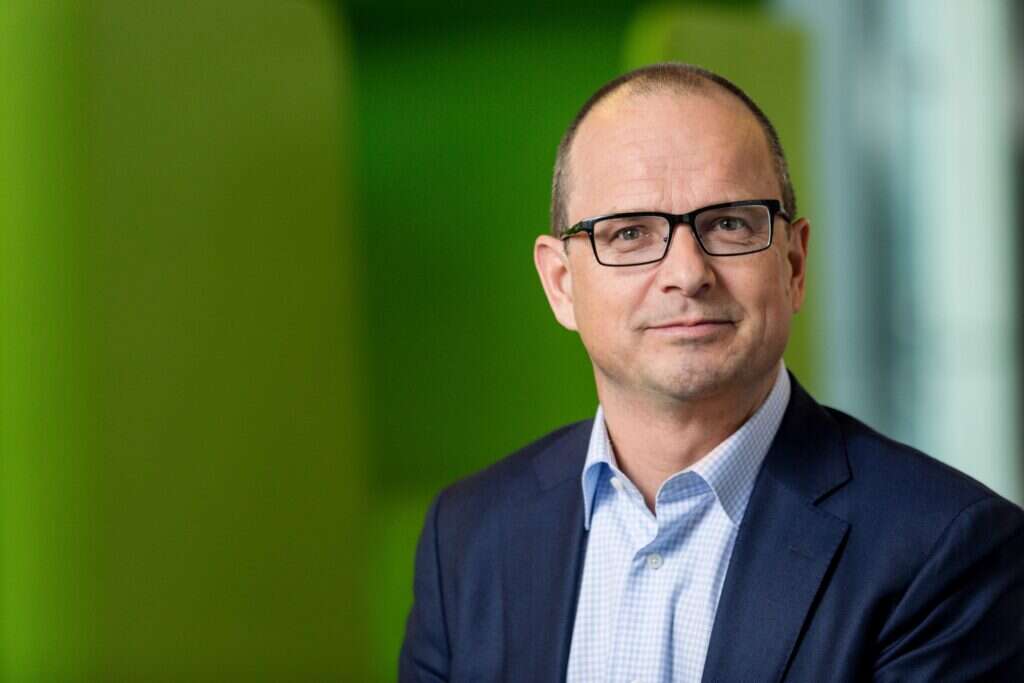
Piet Klop, senior advisor on responsible investment at PGGM, says “outcome metrics are pushing the frontier”. (Photo courtesy of PGGM)
- The investment platform allows asset owners to invest in SDGs supported by big data technology.
- APG had parked almost €10bn in sustainable and green bonds by the end of 2019.
- bpfBOUW set a target of €12bn in SDG-related investments for 2020.
In July 2020, two of Europe’s biggest pension fund managers embarked on an ambitious investment collaboration to further the United Nation’s Sustainable Development Goals (SDGs) through targeted allocations.
The launch of the Sustainable Development Investment Asset Owner Platform (SDI AOP) – a joint project between the Dutch institutions APG and PGGM – marked the culmination of more than five years of work to develop a way of investing in the SDGs, a set of 17 broad goals set by the UN to improve life on earth by 2030.
APG – which manages €573bn (£493bn) in pension assets on behalf of more than 4.7 million people in the Netherlands – had been taking an active approach to sustainable investing for many years, says Claudia Kruse, the company’s managing director for global responsible investment and governance.
In 2017, along with fellow investor PGGM (the €266bn asset manager for healthcare pension fund PFZW, among others), APG announced a plan to make the SDGs investable. In July that year, they set out criteria for investing in 13 of the 17 goals.
After a further two years of development, in 2019 the duo presented an investment platform for the SDGs at the Principles for Responsible Investment’s (PRI) conference in Paris. In July 2020, as the Covid-19 pandemic held Europe in its grip, APG and PGGM announced the launch of their SDG platform in collaboration with Australian pension fund AustralianSuper and Canadian pension giant British Columbia Investment Management Corporation.
With more than $1trn (£710bn) in assets between them, the quartet wishes to be a force for good in institutional investment.
“We think of it as a community of investors who are working together,” Kruse explains. “What really makes this unique is that it is an asset-owner-backed and asset-owner-led standard… Our main objective is to drive the adoption of a standard that is truly aligned with the SDGs and to generate as big a community as we can around it.”
Harnessing big data
Many asset managers and institutional investors have been working on ways to align their clients’ money with the SDGs for some time. The main issue facing them has been data: the goals are typically not measurable using traditional financial data – so how can investors ensure the companies in an investment portfolio are doing what they want?
“We figured that this cannot be covered just with fundamental research, but that we need to make use of artificial intelligence and big data solutions,” says Kruse. “For that reason, we approached Deloitte, which had a data science and innovation team. They did a proof of concept, which went well.”
So well, in fact, that APG later supported the Deloitte team’s move to spin off from its parent company to become Entis – now an independent business unit of APG.
Entis has developed a set of algorithms that sit at the core of the SDI AOP. These use big data and natural language processing to gauge sentiment related to companies and add it to more traditional financial data.
Currently, Entis’s definitions cover 8,000 companies, but the real-time nature of the AI processes means they are constantly being updated to consider new sources of data and new scientific understanding of areas relevant to climate change and other SDGs. Continuing to do this will be a key indicator of the SDI AOP’s success, Kruse says, and will require active engagement with multiple stakeholders.
“We’re getting better at this,” says Piet Klop, senior advisor on responsible investment at PGGM. “It is turning unstructured information into something that investors can actually handle.”
The algorithms generate “classifications” used to identify investment opportunities. These classifications then allow SDI AOP users to assess their investment portfolios based on their contribution to the SDGs. This data can be used not only to make investment decisions but also to report to clients and other stakeholders “transparently and consistently, using a common and auditable standard”, according to Entis’s website.
The classifications are starting to gain traction with other investors such as asset managers. They are licensed to other users through analytics company Qontigo (although Kruse emphasises that the commercialisation of the investment framework is not the main aim).
Measuring success
As the SDI AOP is so new, Kruse and Klop point out that the way its success is measured is likely to evolve over time.
The platform measures how much each portfolio company contributes to the SDGs… to calculate their total exposure to SDG-aligned investments.
Currently, the platform measures how much each portfolio company contributes to the SDGs through its products and services, which they can then use to calculate their total exposure to SDG-aligned investments. This is based on publicly available financial data – “a reflection of the ‘now’”, as Kruse describes it.
However, the pension funds want their platform to be able to assess the future impact of companies too.
Kruse explains: “We want to work more with forward-looking metrics to look at how well a company is positioned for the future. This will also give credit to companies that have a good research and development pipeline, and companies whose strategy is better positioned.”
“Outcome metrics are really pushing the frontier,” Klop says. “There is a lot of talk about outcome-based investing these days, and companies with a purpose. We think that, ultimately, this needs to be quantified for it to be credible.”
No one underestimates the complexity of this.
“We believe with increasing data [quality], that’s ultimately where we want to be: companies reporting on what impact they really delivered when it comes to the SDGs,” says Klop.
While APG and PGGM are reluctant to claim to be doing this just yet, the PRI has indicated that they are close – perhaps closer than many other sustainability-focused investors.
Setting standards
Away from the SDGs, APG and PGGM also helped set up the Global Real Estate Sustainability Benchmark (GRESB) in 2011 in partnership with UK and Danish pension funds. Now an independent company, the GRESB is recognised as a leading, global ESG ratings standard for property investments. In 2015, it launched GRESB Infrastructure, designed to perform the same role for infrastructure assets and investors.
Most recently, APG has played an active role in setting standards and definitions for Covid-19 response bonds. The asset owner is already a serious global investor in green and sustainable bonds, with €9bn allocated at the end of 2019.
APG is already a serious global investor in green and sustainable bonds, with €9bn allocated at the end of 2019.
The guidelines set out the Dutch investor’s expectations of companies when raising money specifically to respond to the impact of Covid-19. These include high standards of reporting and accountability on top of regular fixed income data to ensure money is spent on the people who need it most, whether supporting company employees or their customers.
The role of asset owners
Kruse emphasises that large asset owners have a pivotal role to play in sustainable investing initiatives such as this. For example, APG’s main client, ABP, set a target of allocating €58bn to SDG investments by 2020. It has comfortably exceeded this target, hitting €63bn at the end of last year.
The wider asset management sector has a lot further to go to reach these kinds of numbers. A recent report from exchange-traded fund (ETF) data specialist TrackInsight found there were 208 ETFs aligned to specific SDGs as of the end of 2020, with just under $72bn in assets under management between them. However, across all funds, only 11 SDGs were covered, and four of the goals had only had one or two dedicated ETFs available.
Client demand is showing no signs of letting up. ABP, the Dutch civil service pension scheme, wants APG to allocate at least 20% of its ever-growing investment portfolio to the SDG platform by 2025 – equivalent to €98.6bn according to its latest annual report.
APG’s second-biggest client, building industry pension fund bpfBOUW, set a target of €12bn in SDG-related investments by the end of last year. It had reached €11.5bn by the end of 2018 and €13.5bn a year later. It will soon set out a new target for the next five years.
With less than nine years until the UN’s target for the Sustainable Development Goals, initiatives such as the APG-PGGM platform will be crucial in channelling significant funding to where it is needed the most.
“We want to move beyond ESG – that’s just proper risk management,” says Klop. “That’s the sort of thing you ought to be doing as a good fiduciary. Beyond that there is doing the right thing. We think about it as solutions to the SDGs… We want to be on the supply side of solutions that bring these SDGs closer.”




